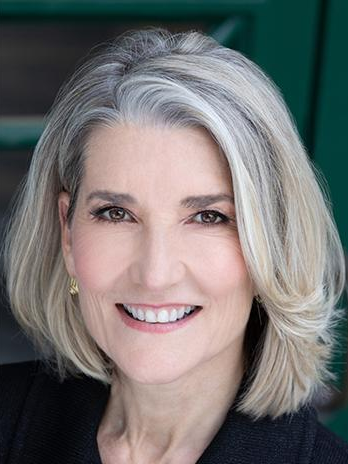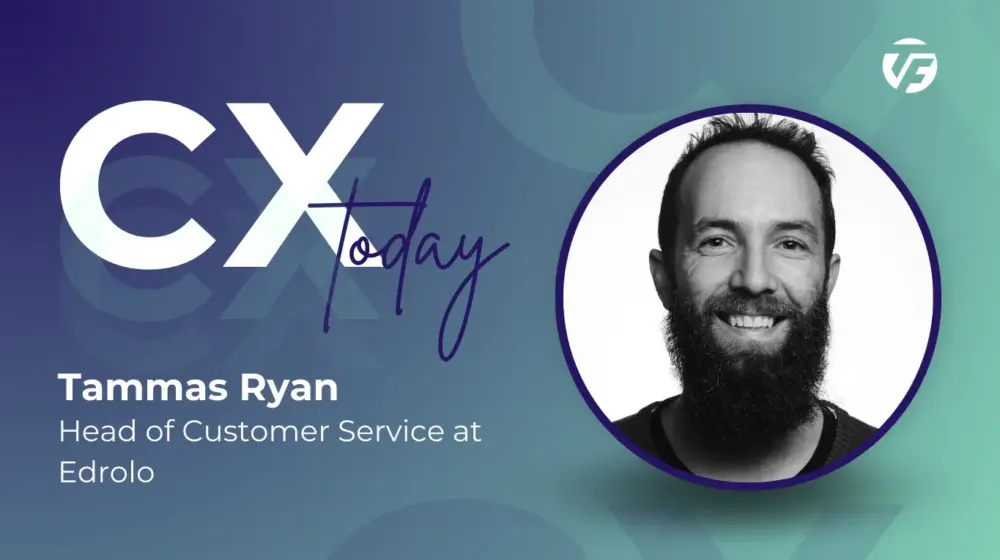
“Jobs of the future? Chief Psychological Safety Officers will be in, bureaucrats will be out”
Our series of “Future of Work” interviews has already featured CEOs, CXOs and futurists. Duena Blomstrom could almost be described as all three rolled into one. And then some: her full title is Influencer, Keynote Speaker, Author, Co-Founder and CEO at PeopleNotTech.

Duena’s philosophy, and that of her company, is founded around psychological safety. Google agrees, listing it as the most important factor in the dynamics of an effective team. To quote that report: “In a team with high psychological safety, teammates feel safe to take risks around their team members. They feel confident that no one on the team will embarrass or punish anyone else for admitting a mistake, asking a question, or offering a new idea.”
Talking of new ideas, Duena coined the concept of HumanDebt. “HumanDebt is comprised of all of the initiatives, the projects, or the intentions the organisation had to do better by their employees but abandoned halfway,” wrote Duena in 2021.
So now, in 2023, what are the challenges when it comes to the future of work? Our thanks to Duena for taking the time to share her thoughts, below.
What was your first role in tech and what is your current role today?
When I first started in tech I did some sales, marketing and strategy roles before building a small consultancy looking at ERP systems and the backend of enterprises. This was incredibly many moons ago – 20 years. These days I live and breathe technology. I lead a software company called PeopleNotTech and write about the future of work, psychological safety in teams, HumanDebt and tech-led culture.

Who in tech do you find inspiring, and why?
It takes a lot to impress me but if I had to choose someone I would say Reid Hoffman. He’s one of the founders of LinkedIn and one of the smartest investors on the planet.
I’m a big fan of Professor Amy Edmondson, who is the subject matter expert in Psychological Safety, and Gene Kim who is the subject matter expert in DevOps culture.
Other than that the people immediately next to me impress me on a daily basis. My super-resilient amazing technologist husband Dave, my team of amazing co-founders and every corporate Superhero who fights for the HumanWork (all of the work on relationships, emotions, empathy and connection that has to happen in teams on a daily basis).
What jobs do you think AI might replace?
I don’t think there is any ambiguity left: AI will replace the lower-level white-collar jobs that required no genuine human input. Meaning the ones where complex creativity, flawed and human critical thinking and emotions will be necessary. We won’t be replacing humans with AI but with other humans who know how to use AI and be in touch with their emotions as a competitive advantage.
What are the major factors influencing the future of work?
The real factor to influence the changes we will see in the space of “office work” is technology. The speed and advancements of it as well as its demands for being built.
That is the dual definition of “tech-led” culture – we can neither ignore nor disregard the needs technology brings in terms of collaboration, nor the needs that are brought about by the consumer demands on technology. From both points of view, technology is the main driver behind everything.
That said, another major factor was of course the way in which Covid has clarified the topic of remote work. Covid has also affected the workplace crisis we are traversing now (of mental health, EQ and leadership). If there has been intelligent growing and healing from the HumanDebt then we can at last be hopeful.
Which tech skills will be in most demand over the next 12 months? And ten years?
I wouldn’t like to speculate on particular types of tech as they are so blissfully fluid, but anyone with the ability to see concepts and who has a predilection for understanding the bigger picture – people who have a design or architectural mind – will fare well. Being a Renaissance type of person who also takes an interest in AI-prompting (while remaining opinionated and ready to defend and flaunt their humanity) will be beneficial.
Is there any science fiction story that, in your view, successfully predicts the future?
Of course not. For all our superiority as the most technologically advanced civilisation, we can’t even predict this week’s weather with accuracy. Forget imagining what will happen in the future.
How do you think the work office will change in the next ten years?
Think giant WeWork style drop-in spaces for common, creative work and complex and intelligent opportunity for maximum social connection and interaction.
What jobs will be gone by 2030? And what new jobs might be created?
“Chief Psychological Safety Officers” will be in, “Fear mongers” that made people cower and not contribute will be out. “Mind reader” will come in, “Bureaucrat” will go out. “Super Empath with a wide array of knowledge” will come in and “Can’t care less about others I’m an island and just write code in this corner” will be out. “Courageous and opinionated free thinker” will come in, “sequential fearful cowering employee” will go out. “Emotions/Relationship Coach” will come in and anyone who thinks “being a professional” means hiding their emotions at work will be out. “Servant leaders who are authentically concerned with their people” will be in and “command and control managers” will be out.
And so on, you get the picture. “Humanity” in, “the way we always did things around here” out.
What is a recent example of technology disrupting work that you found interesting?
The most interesting and exciting parts of this revolution in AI are the promise of accelerating medical advancements and eradicating illness. Or lessening the load on national services and systems eventually. Not simply its ability to replace copywriting, HR or accounting functions.
But AI’s implications are far beyond my imagination’s limits and that is truly exciting. I just hope it is a future we have prepared for by bettering our EQ [emotional intelligence quotient, as opposed to IQ], our team interactions and our high-performance dynamics.
Read next: How the world of work will look in 2030 by futurist Nicole Kobie
More “Future of Work” interviews… and get involved!
Our thanks once more to Duena for taking the time to answer our questions. Here are some more you might find interesting:
- Fazilat Damani, Chief Experience Officer at Design for Good. “AI won’t completely replace jobs, but rather evolve them.”
- Jimmy Lee, technologist and CEO of Nirovision. “The work each individual carries out will evolve to use AI copilots, but I’m hopeful that this makes the work even more productive, creative and gratifying!”
- Tony Hallett, MD of Collective Content. “The part of society most impacted by technology will be the world’s middle classes.”
If you have something to say about the Future of Work, please email us at [email protected].
NEXT UP

Tammas Ryan, Head of Customer Service at Edrolo: “The disruption caused by AI is likely to impact offshore customer service operations”
We interview Tammas Ryan, Head of Customer Service at Edrolo, a company providing teaching resources for teachers in Australia

Terminator 2 in 2024: liquid metal and soft robots are here today
Metals which stay fluid at room temperature aren’t a science fiction invention. In this T2 revisit, we explore liquid metal and soft robots.

Oracle to expand cloud and AI footprint in Japan with $8 billion investment
Oracle has announced that it will invest more than $8 billion over the next decade in cloud computing and AI in Japan.